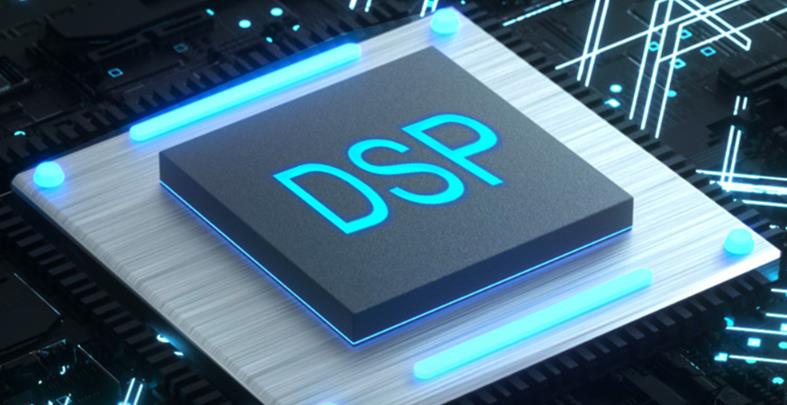
Digital Signal Processors (DSPs) are highly specialized microprocessors designed specifically for digital signal processing tasks. They are capable of performing complex mathematical operations swiftly and efficiently, such as Fourier transforms, filtering, and data compression. The core advantage of DSPs lies in their optimization for signal processing tasks, including the adoption of an improved Harvard architecture, which allows simultaneous access to instructions and data, thereby enhancing processing speed.
DSP Advantages and Features
The advantages of DSPs are their high real-time processing capabilities and optimized mathematical computation performance. They typically have the following features:
● High-speed processing ability: DSPs can complete multiple multiplications and additions within a single instruction cycle, greatly improving processing speed.
● Low power design: Designed for portable and low-energy applications, making them particularly suitable for battery-powered devices.
● Programmability: Users can write and adjust algorithms according to their needs to adapt to a variety of application scenarios.
● High precision: When performing digital signal processing tasks, DSPs can maintain high-precision computational results.
● Stability: Maintain stable performance in various environments.
DSP Application Fields
The application of DSPs is very extensive, covering multiple fields from consumer electronics to professional equipment:
1. Communication equipment: Used in mobile phones, base stations, and other equipment for signal modulation, demodulation, encoding, and decoding.
2. Multimedia processing: Processing audio and video signals in fields such as MP3 players and video compression.
3. Automotive electronics: Processing sensor data in Advanced Driver Assistance Systems (ADAS).
4. Medical equipment: Used in biomedical signal processing such as ultrasound imaging and heart rate monitoring.
5. Industrial control: Fast data processing and decision-making in automated control systems.
Major Suppliers and Popular Models
Global DSP market is dominated by the following major suppliers:
● Texas Instruments (TI): As one of the world's leading DSP suppliers, TI offers a wide range of DSP products, including but not limited to the TMS320 series. The TMS320C5000 series, such as TMS320C54V90PGE, is specifically designed for low-power applications and is widely used in wireless communication and portable devices; the TMS320C6000 series provides high-performance processing capabilities, suitable for high-end communication and digital media applications. These products focus on performance, power consumption, and integration to meet the needs of everything from simple consumer electronics to complex industrial and military applications.
● Analog Devices, Inc. (ADI): ADI has strong technical strength in the field of high-performance analog and digital signal processing. Its DSP products are known for their high precision and reliability, especially suitable for applications requiring precise control and signal processing. Its ADSP-21000 series can provide floating-point processing capabilities, suitable for complex signal processing tasks. The Blackfin series, with its efficient processing power and low power consumption, is suitable for a variety of embedded applications.
● Motorola/NXP Semiconductors: Offers a range of DSP chips with different characteristics, with products widely used in the fields of wireless communication and multimedia processing. For example, Motorola's MC56000 series is designed for automotive electronics and industrial control applications, providing real-time processing capabilities.
The global DSP market is very broad, in addition to the above major suppliers, there are other DSP suppliers that mainly focus on specific areas and markets, such as Lucent, Zilog and other suppliers mainly provide more targeted and representative DSP solutions. But all suppliers' product models are popular among users in different market fields due to their specific performance characteristics and application scenarios. With the development of technology, new DSP models are also being introduced to meet the growing market demand.
DSP Industry Status and Development Trends
The DSP industry is experiencing rapid growth and development. With the rise of technologies such as 5G communication, artificial intelligence, and the Internet of Things, the demand for specific types of high-performance DSPs is also increasing. Suppliers are continuously introducing new DSP architectures and algorithm accelerators to improve processing speed and energy efficiency. Market research shows that the global market size for DSP chips is expected to continue to expand in the coming years.
At the same time, under the global supply chain changes and policy support, some countries and regions are promoting the development of local DSP technology to reduce dependence on the outside. The DSP market is developing towards higher performance, lower power consumption, and a wider range of application fields, while also adapting to the challenges and opportunities brought by emerging technologies.
Conclusion
With the continuous advancement of technology, the application of DSPs in various fields will become more in-depth and extensive. They will continue to serve as indispensable core components in the digital world, driving innovation and development in various industries.
Website: www.conevoelec.com
Email: info@conevoelec.com







